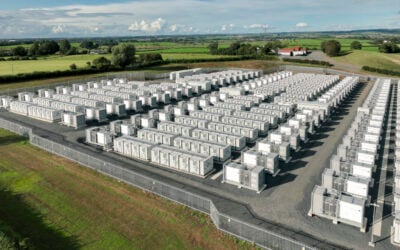
Ørsted has appointed REMAP as its marketing agent for its flexible generation and revenue optimisation services in the UK.
REMAP has been granted a license to use insights from Ørsted’s Balancing Mechanism algorithm to provide project development support to third party developers and asset owners.
This access gives REMAP the capability to provide revenue modelling for storage assets. The partnership between Ørsted and REMAP offers developers end-to-end project support, from project design through the procurement, contracting and financing stage and during ongoing operations.
The UK’s flexible generation sector has the potential for “significant growth” but is currently being held back by “lack of certainty of revenues and a mature route to market”, Kyle Worthington, head of power origination at Ørsted, said.
Try Premium for just $1
- Full premium access for the first month at only $1
- Converts to an annual rate after 30 days unless cancelled
- Cancel anytime during the trial period
Premium Benefits
- Expert industry analysis and interviews
- Digital access to PV Tech Power journal
- Exclusive event discounts
Or get the full Premium subscription right away
Or continue reading this article for free
“We believe that projects can support unsubsidised revenue strategies, but we also recognise that assistance is needed at an early-stage in order to build a financeable business case.”
Partnerships to optimise storage assets across several revenue streams are becoming more common in the UK, including agreements between Gresham House Energy Storage Fund and EDF and Upside, as well as with KiWi Power for its 15MW Lockleaze project and Flexitricity for the Norkier Staunch project, and the 2MW battery installed by Pivot Power at the Arsenal Emirates Stadium, which is fully automated and optimised by Open Energi’s Dynamic Demand 2.0 platofrm.
As Robyn Lucas, head of data science at Open Energi, explained in a blog for sister site Current±, “getting the maximum price per hour of operation requires market insight, automated response, an understanding of the constraints of the battery and the site on which it sits, and an appreciation of the risks involved – with buy-in from all parties”.
Ørsted currently manages its own group assets, as well as third party assets, but this agreement represents an expansion of its services to include storage and other flexible generation technologies.
Ørsted completed its maiden large-scale UK battery, a 20MW system in Liverpool, in January 2019, through which its asset optimisation software has been developed and tested, which gave Ørsted “valuable insight and experience which we can now pass on to third party clients”, Worthington added.
Paul Mason, director of REMAP, pointed to REMAP’s specialist experience in project finance, revenue modelling, warranty and performance analysis, which “fits perfectly” with Ørsted’s flexible approach to revenue optimisation.
“Together, we ensure a project is optimised to deliver the specific goals of every asset owner,” he continued.





